Given what happened to the city of Leningrad (now St. Petersburg) during World War II and its almost three-year long siege, it is not surprising that there are some important World War II monuments in the city. Here is one such monument honoring the city's status as a "hero city."
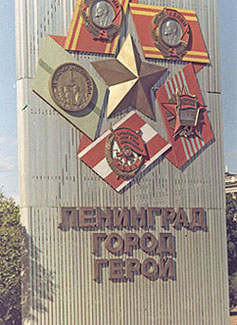
These next four photos are images of the Monument to the Heroic Defenders of Leningrad Monument in Ploshchad Pobedy (Victory Square) finished in the early 1970.
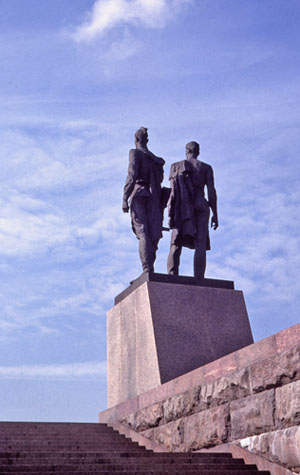
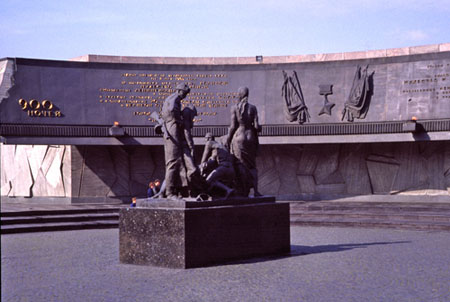
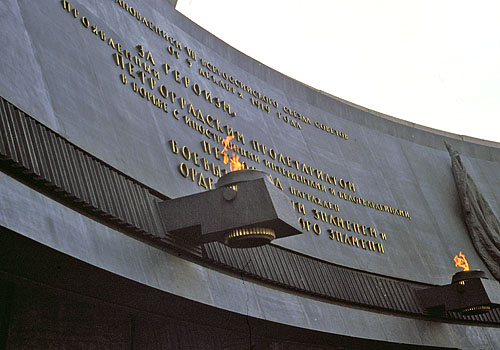
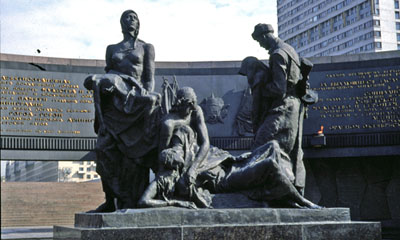
The other major memorial in St. Petersburg is at Piskarevskoe Kladbishche (Piskarevskoe Cemetery):
"About half a million of them, including 420,000 civilians, are buried in the cemetery's 186 mass graves. The slightly raised mounds are marked by year and a long alley leads the visitor to a monument with a statue of the Motherland, portrayed as a grieving woman."
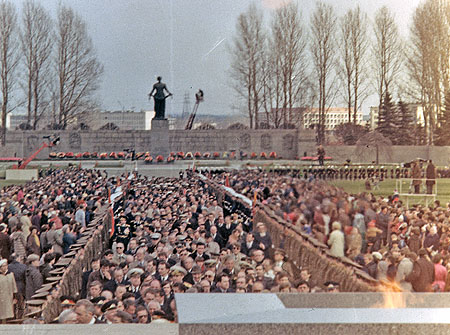
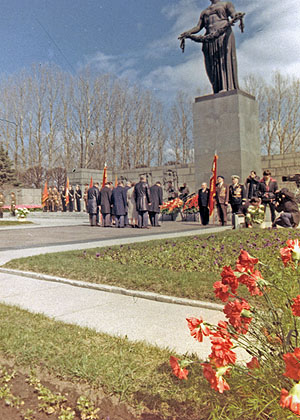
As you walk toward the monument of Mother Russia, with mass graves on either side of the path, you will hear the music of Dmitrii Shostakovich's (1906-1975) 7th Symphony (the "Leningrad Symphony"), which he composed during the war.
When it premiered in March 1942, the Seventh brought international renown to Shostakovich, and orchestras worldwide rushed to include it in their repertoires. Making effective use of harrowing footage—corpses lying in the snow, a child dragging a coffin across the Neva—The War Symphonies tells the famous story of how the Leningrad Radio Orchestra decided to perform the Seventh as a gesture of anti-German defiance, despite the fact that almost half the orchestra's musicians had perished. On August 9, 1942, a large audience—hungry, dressed in rags, some wearing gas masks or carrying weapons—gathered in the Philharmonic. As a silent memorial, instruments were placed in the empty seats of the many orchestra members who had earlier died. The performance remains one of the most inspirational moments in the story of Leningrad's heroic struggle; as Ksenia Matus, the orchestra's oboist, reminisces, "[Shostakovich’s] music inspired us and brought us back to life; this day was our feast." (The War Symphonies: Shostakovich Against Stalin)